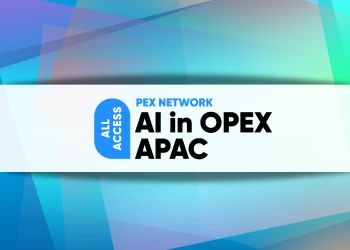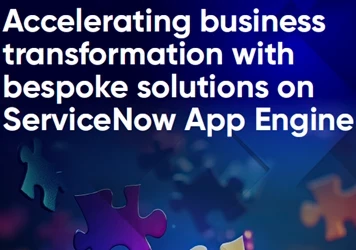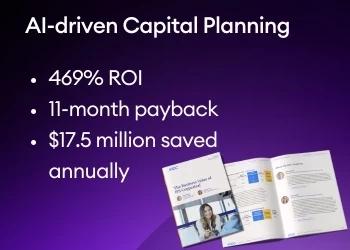Three takeaways from PEX Live: Operational Excellence 2021
Discover the greatest lessons learned from the insights shared at the PEX Network OPEX event, including the key to successful digital transformation and delivering impactful employee experiences
Add bookmark
The rapid pace of change many industries are experiencing, ignited by the disruption of the Covid-19 pandemic and the global digital transformation that followed, necessitates agility and efficiency from businesses if they want to survive. As such, the tools and methodologies that are employed in the quest for operational excellence are constantly changing as process experts are discovering new ways to work.
With this in mind, PEX Live: Operational Excellence 2021 brought together a range of industry experts to discuss the latest trends and approaches in operational excellence, as they offered process excellence practitioners critical advice for ensuring their businesses are equipped to handle disruption and achieve operational excellence. Below, we have summed up some of the key takeaways from the event.
Translating technology transformations into real business value
In this panel discussion, process experts from Ally.io, ABPMP, Unilever and United Airlines discussed the lack of alignment, transparency and visibility present in many organizations. These shortcomings are often present despite new technologies that are talking to each other, due to silos formed across various functions, which make it difficult to translate technology into real business value. The panel offered examples of how business value has been achieved in their organizations.
Todd Gernady, senior manager of business architecture and process re-engineering at United Airlines, noted that as a result of the pandemic and related disruption the business realized they would need to provide teams with the tools to do more with less, as things are changing very quickly and companies need to be able to react. Gernardy details the innovative travel application that the airline has developed, which stores necessary travel documentation and informs passengers what is required of them regarding testing, vaccinations or visa restrictions. By applying technology the organization can create real business value by identifying a solution that promises to make customers’ lives significantly easier.
Low-code is the key to successful digital transformation
Citing research from Gartner, Tim Doherty, enterprise account executive at Creatio, explained that 43 per cent of respondents believe the key barrier to digital transformation is a lack of skilled resources such as IT staff. For this reason, low-code and no-code solutions are the key to successful digital transformation in business services, due to the fact that they have the capability to allow application development through simple drag-and-drop features, removing the need to employ staff with coding or application development experience. By removing the need to go through IT to see an idea for an application come to fruition will significantly reduce the time-to-value for these projects and will enable organizations to constantly push the digital transformation agenda from all areas of the business.
“Gartner have identified that by 2023 the number of active citizen developers will be at least four times the number of professional developers,” remarked Doherty.
Statistics like this highlight the level of confidence that process experts have in low-code and no-code solutions. As organizational ability to innovate, adapt and develop applications on the fly enhances, we will likely witness an accelerated rate of digital transformation across the businesses that have deployed them.
Delivering impactful employee experiences with a human-centered approach
Tony Thomas, chief customer officer at Skuid, spoke at the event to advocate for a human-centered approach when delivering solutions that will enhance employee experiences and make life easier for them. Thomas recommended a human-centered design focus when developing things like interactive dashboards, account dashboards or external facing portals.
“When you think of the applications that employees are using today [in day-to-day life], they have come to expect great experiences,” remarked Thomas. “This is especially true with the newer workforce, as great user experiences are all they know.”
As such, it is important that businesses try to replicate these experiences within the workplace, to ensure that you hold on to your employees and make it easy for them to carry out their best work, rather than having to work around outdated or inefficient systems. According to Thomas, organizations can achieve human-centered design through a focus on four key principles, namely utility, efficiency, clarity and refinement. A focus on these principles will allow employees not only to successfully complete tasks but to do so faster than they would typically be able due to the clarity of the application or dashboard and the smooth experience it offers.
At PEX Network we are constantly producing events, webinars, articles, industry reports and guides covering all areas of process excellence. To gain exclusive access to thought-leading content such as that demonstrated at PEX Live: Operational Excellence 2021, become a PEX Network member today.































